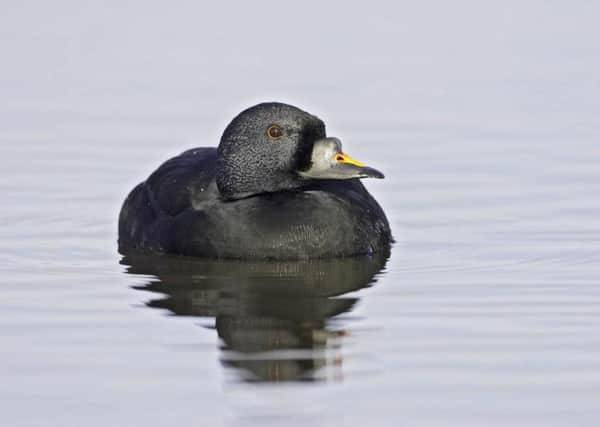Survival of rare duck in Scotland '˜depends on trout fishing'


The globally threatened common scoter has been declining in the UK, but experts did not know why.
Now new research suggests the main food source for the ducks, freshwater grubs and insects, is being gobbled up by hungry fish.
The team believes angling could help.
Advertisement
Hide AdAdvertisement
Hide Ad“There were more insects where there were fewer brown trout,” said RSPB’s Dr Mark Hancock.
“We’re now using these results to design new ways to help scoters. For example, in areas of the north Highlands where angling activity has dropped off and fish numbers have increased, more trout angling is potentially one way to boost freshwater insect life.”
The common scoter project was supported by Scottish Natural Heritage (SNH), the Wildfowl and Wetlands Trust (WWT) and The Conservation Volunteers (TCV).
Dr Andy Douse of Scottish Natural Heritage, who is a co-author of the study, said: “Scotland is the only part of the UK to have breeding scoters, many of which nest in legally-protected nature conservation sites. This study highlights promising management options for restoring populations of this declining species.”
Hannah Robson of the Wildlife and Wetlands Trust, also a co-author, said: “Scoters are amazing birds: an arctic species finding a haven in remote Scottish lochs. This research points to the ways in which we might be able to save them as a fascinating part of our Scottish wildlife heritage.”
John McFarlane, of The Conservation Volunteers, said: “TCV is delighted to have been part of this exciting project. Working with partners like RSPB Scotland and WWT allowed our Natural Talent Apprentice Hannah Robson to really fine-tune her taxonomy skills. All of which helps to inject new fresh blood into aquatic conservation.”
